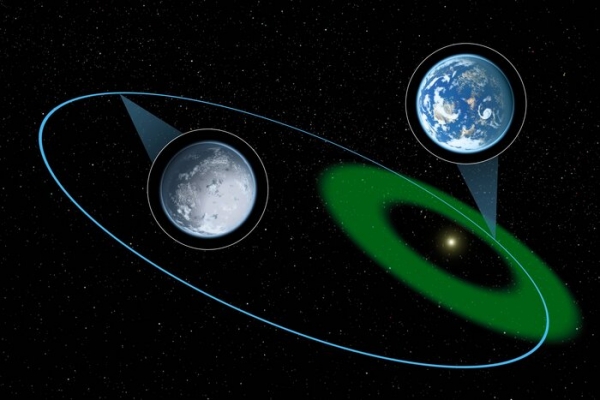Of all known planets, Earth is as friendly to life as any planet could possibly be — or is it? If Jupiter’s orbit changes, a new study shows Earth could be more hospitable than it is today.
When a planet has a perfectly circular orbit around its star, the distance between the star and the planet never changes. Most planets, however, have "eccentric" orbits around their stars, meaning the orbit is oval-shaped. When the planet gets closer to its star, it receives more heat, affecting the climate.
Using detailed models based on data from the solar system as it is known today, UC Riverside researchers created an alternative solar system. In this theoretical system, they found that if gigantic Jupiter’s orbit were to become more eccentric, it would in turn induce big changes in the shape of Earth’s orbit.
“If Jupiter’s position remained the same, but the shape of its orbit changed, it could actually increase this planet’s habitability,” said Pam Vervoort, UCR Earth and planetary scientist and lead study author.
Read more at University of California - Riverside
Image: A habitable zone, shown in green here, is defined as the region around a star where liquid water, an essential ingredient for life as we know it, could potentially be present. (Credit: NASA/JPL-Caltech)


